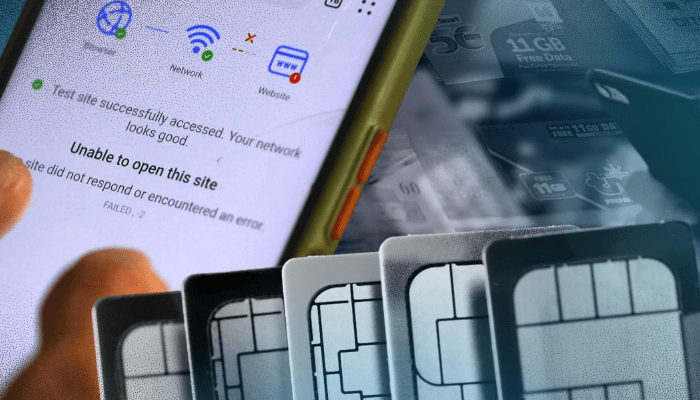
Deadline for SIM Registration in Philippines to be Strictly Followed
The Wednesday deadline for registering subscriber identity module (SIM) cards shouldn’t be changed. In order to “promote the responsible use of SIMs and give law enforcement agencies the necessary tools to crack down on perpetrators who use SIMs for their crimes,” President Marcos signed Republic Act No. 11934, also known as the SIM Registration Act, on October 10, 2022.
Existing phone users are required by law to register their SIM cards, and new purchasers are required to provide identification documents. This makes sure that anyone responsible for texts or calls that were previously made covertly or anonymously will be held accountable. The government is attempting to stop fraudulent activities including text-related fraud and identity theft by implementing this policy.
Users of mobile phones have had more than six months to register their SIM cards, which shouldn’t take longer than ten minutes. The Department of Information and Communications Technology (DICT) did, however, receive a lot of requests to extend the deadline as it got closer.
The third telecom participant, Dito Telecommunity, requested a 120-day extension in a position paper it presented to the DICT last week because just 40.2% of its users have signed up. On April 12, PLDT Inc.’s Smart mobile division also submitted a petition to the DICT and the National Telecommunications Commission (NTC) in an effort to give “ample time” to all mobile users, particularly those in remote parts of the country, to register their SIM cards. Smart reports that only 55.1% of its total users have done so.
The rationale for the extension, according to Globe, is to give their members more time to obtain the required official IDs for the registration process. Globe claims that 38% of its subscribers have registered. Concerned about concerns to data privacy and free speech, journalists and activists have even asked the Supreme Court to place a temporary restraining order on the SIM Registration Act.
It is encouraging to see the DICT maintaining its resolve. With two days left before the deadline and the possibility that the DICT might change its mind in response to the extension requests, it is wise to be firm in rejecting all requests for an extension and instructing telcos to deactivate all unregistered numbers after this date. The DICT stated last week that “at this point, there is no extension of SIM registration.” It should merely serve as a reminder to the general public that failure to register will result in the deactivation of SIMs, preventing users from accessing mobile applications and digital wallets as well as receiving and making calls and texts.
The deadline shouldn’t be extended for a number of reasons. Mobile users had more than enough time to complete a quick task, and telco players might have done more to assist the government by physically traveling to nonurban areas where their subscribers are located and assisting them with SIM card registration.
Their justification for not having identification is also tenuous because the law’s guidelines list a variety of acceptable forms of identification, including the following: a driver’s license, a passport, a voter’s ID, a tax identification number card, a person with a disability card, a driver’s license, a UMID card, a member card of the Social Security System or Government Service Insurance System, a senior citizen’s card, and a card from a government office.
While certain persons in distant or extremely isolated places may have difficulty obtaining a legitimate ID, this should not be an excuse to completely extend the deadline for everyone else. Though this should be done after the deadline, the government can still consider ideas for the ID issue. It is important to note at this point that had the national ID system has been implemented much earlier, the SIM registration procedure could have gone more quickly.
The primary goal of the SIM registration operation, which is to filter out scammers preying on tens of thousands of regular Filipinos, is the most crucial justification for not extending the registration deadline. As a result, Jon Paulo Salvahan, deputy commissioner of the National Telecommunications Commission, stated that the organization did not anticipate 100% registration. It is plausible to assume that some of those SIM cards that have not yet been registered were used by these con artists.
If the deadline is extended, those who complied with the law by registering on time will suffer penalties and will still be at risk from online crooks. Additionally, there is still time to register even beyond the deadline, and anyone whose SIM card is unexpectedly revoked will undoubtedly rush to have it activated again. On the other hand, extending the deadline will likely encourage them to procrastinate once more and fall back into their usual state of complacency. It’s past time to hold offenders accountable for their actions—or, in this case, inaction.
Other Interesting Articles
 NFL Suspends Five Players for Breaching League’s Sports Betting Policy Apr 24, 2023
NFL Suspends Five Players for Breaching League’s Sports Betting Policy Apr 24, 2023











